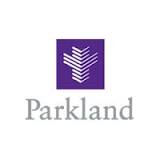Vitamin C for Severe Thermal Injuries
| Status: | Withdrawn |
|---|---|
| Conditions: | Hospital |
| Therapuetic Areas: | Other |
| Healthy: | No |
| Age Range: | 18 - 65 |
| Updated: | 3/8/2019 |
| Start Date: | June 2017 |
| End Date: | December 2017 |
Prospective Placebo-Controlled Double-Blinded Trial for High-Dose Vitamin C Administration During the Acute Resuscitative Phase of Severe Thermal Injuries
Animal and human data have supported the notion that administration of large doses of Vitamin
C has beneficial effects on those subjects suffering from large burns. This effect may be
due, in part, to the antioxidant and free-radical-scavenging properties of Vitamin C. These
studies have demonstrated an improvement in urine output during resuscitation and reduced
need for fluid volumes during resuscitation. In turn, these subjects demonstrated a reduction
of wound edema, improved respiratory status (demonstrated by improvements in P:F ratios and
reduced ventilator days), and no differences in terms of the possible complications of
high-dose vitamin C administration between standard and treatment groups. The purpose of this
study is to prospectively determine if Vitamin C can be safely used as an adjunctive
treatment for patients suffering severe thermal injuries. High-dose vitamin C administered at
a dose of 66mg/kg/hr during the acute phase of severe burn injuries will reduce fluid
requirements in the first 48 hours after injury.
C has beneficial effects on those subjects suffering from large burns. This effect may be
due, in part, to the antioxidant and free-radical-scavenging properties of Vitamin C. These
studies have demonstrated an improvement in urine output during resuscitation and reduced
need for fluid volumes during resuscitation. In turn, these subjects demonstrated a reduction
of wound edema, improved respiratory status (demonstrated by improvements in P:F ratios and
reduced ventilator days), and no differences in terms of the possible complications of
high-dose vitamin C administration between standard and treatment groups. The purpose of this
study is to prospectively determine if Vitamin C can be safely used as an adjunctive
treatment for patients suffering severe thermal injuries. High-dose vitamin C administered at
a dose of 66mg/kg/hr during the acute phase of severe burn injuries will reduce fluid
requirements in the first 48 hours after injury.
Subjects presenting within 6 hours of a severe thermal injury, defined as greater than 20% of
their total body surface area, or their family members will be approached on admission to
Parkland Memorial Hospital and informed of the study. Those electing to participate in the
study will be randomized to receive either high-dose vitamin C (66mg/kg/hr for the first 24
hours, this dosage is based on prior human studies) in addition to the standard resuscitation
algorithm (as per the Parkland Formula) or to a control group receiving only the standard
resuscitation algorithm. These subjects will then be followed during their hospital course
for fluid requirements, urine output, infectious complication rates, liver/renal failure
rates, abdominal compartment syndrome rates, and outcomes such as ICU days, total hospital
days, and mortality. All adverse events will be monitored by a data safety monitoring board.
Currently this is a planned pilot study with a future multi-center study planned based on the
results of the pilot. These studies will help determine if high-dose vitamin C can be a safe
adjunct to acute fluid resuscitation in severely burned patients.
their total body surface area, or their family members will be approached on admission to
Parkland Memorial Hospital and informed of the study. Those electing to participate in the
study will be randomized to receive either high-dose vitamin C (66mg/kg/hr for the first 24
hours, this dosage is based on prior human studies) in addition to the standard resuscitation
algorithm (as per the Parkland Formula) or to a control group receiving only the standard
resuscitation algorithm. These subjects will then be followed during their hospital course
for fluid requirements, urine output, infectious complication rates, liver/renal failure
rates, abdominal compartment syndrome rates, and outcomes such as ICU days, total hospital
days, and mortality. All adverse events will be monitored by a data safety monitoring board.
Currently this is a planned pilot study with a future multi-center study planned based on the
results of the pilot. These studies will help determine if high-dose vitamin C can be a safe
adjunct to acute fluid resuscitation in severely burned patients.
Inclusion Criteria:
1. Subjects presenting with second and/or third degree burns exceeding 20% total body
surface area but not greater than 75% TBSA
2. Age between 18 and 65 years of age
3. Subject has provided full written informed consent prior to the performance of any
study-related treatment or procedure
Exclusion Criteria:
1. Subjects presenting more than 6 hours from the estimated time of injury
2. Known inclusion in another interventional clinical trial
3. Subjects with known significant comorbidities (Congestive Heart Failure, Myocardial
Infarction within 6 months of admission, Chronic Obstructive Pulmonary Disease,
Chronic Kidney Disease or Renal Impairment)
4. Pregnant Subjects
5. Prisoners or Subjects Under Arrest
6. Subjects younger than 18 years of age or older than 65 years of age
7. Subjects with Baux Scores (Age plus % TBSA) greater than 120 (describing a
non-survivable injury)
8. Subjects with any known allergy to components included in injectable ascorbic acid
9. Subjects with significant trauma burden (ISS > 15), including any open fracture,
intracranial hemorrhage, or significant intra-abdominal injury.
We found this trial at
1
site
5201 Harry Hines Blvd
Dallas, Texas 75235
Dallas, Texas 75235
(214) 590-8000

Phone: 214-648-2523
Parkland Memorial Hospital As our community's public health system, Parkland is the foundation for a...
Click here to add this to my saved trials